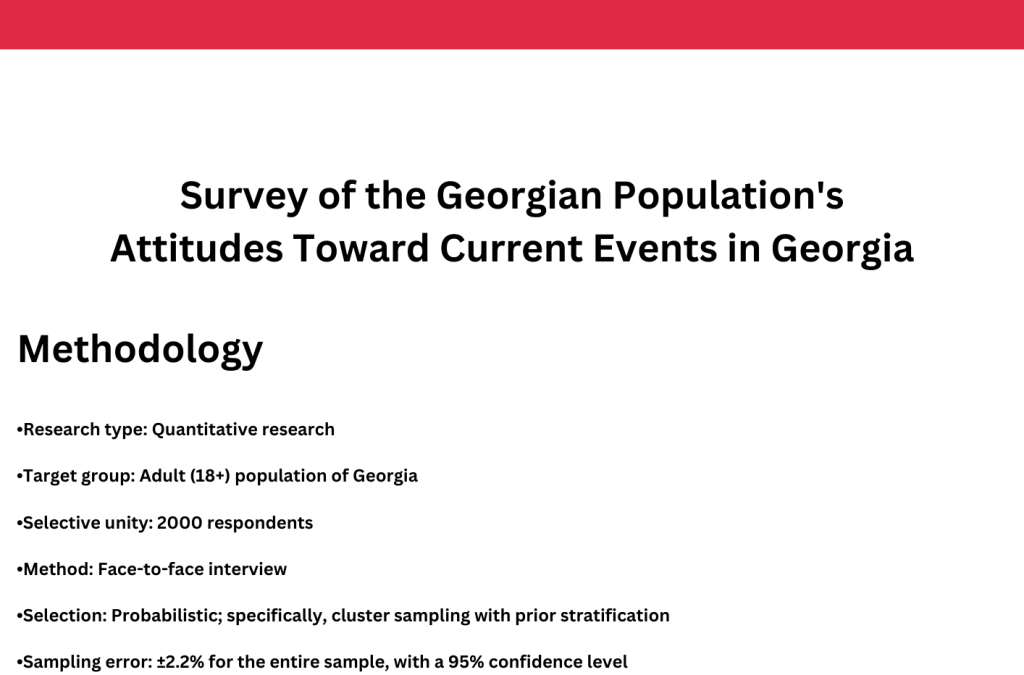The Institute for Social Studies and Analysis (ISSA) conducted a public opinion poll on January 18-30, 2025 for Civil Society Foundation and UNA Georgia
The results of the survey reflect the mood and attitudes of the adult population of Georgia towards the events that have developed in Georgia since October 26. In particular:
The public opinion survey conducted by the Institute for Social Studies and Analysis (ISSA) in January was conducted nationwide; 2,000 respondents were interviewed face-to-face. Respondents were randomly selected from households. The survey results provide a sampling error of ±2.2% for the entire sample, with a 95% confidence level.
The Institute for Social Studies and Analysis (ISSA) is a research organization that has been operating since 2000. The organization conducts both quantitative and qualitative research. Over the course of 25 years, the Institute for Social Studies and Analysis has carried out hundreds of studies in various fields, the results of which have been published in high-ranking international journals as well as in the form of monographs. The institute actively collaborates with both local and international organizations.


By continuing to use the site, you agree to the use of cookies. For more information, see Privacy Policy.